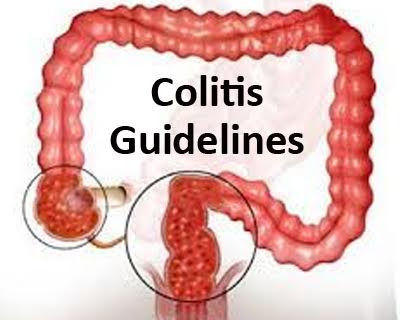- Home
- Editorial
- News
- Practice Guidelines
- Anesthesiology Guidelines
- Cancer Guidelines
- Cardiac Sciences Guidelines
- Critical Care Guidelines
- Dentistry Guidelines
- Dermatology Guidelines
- Diabetes and Endo Guidelines
- Diagnostics Guidelines
- ENT Guidelines
- Featured Practice Guidelines
- Gastroenterology Guidelines
- Geriatrics Guidelines
- Medicine Guidelines
- Nephrology Guidelines
- Neurosciences Guidelines
- Obs and Gynae Guidelines
- Ophthalmology Guidelines
- Orthopaedics Guidelines
- Paediatrics Guidelines
- Psychiatry Guidelines
- Pulmonology Guidelines
- Radiology Guidelines
- Surgery Guidelines
- Urology Guidelines
Medical management of microscopic colitis: American Gastroenterological Association Institute guideline

Microscopic colitis is characterized by chronic watery diarrhea caused by inflammation in the colon and diagnosed by colonic biopsy. With a predilection for those 60 years of age or older, it comprises 2 subtypes, lymphocytic colitis and collagenous colitis; there is a female predominance in the latter.
Microscopic colitis is not associated with increased mortality, although symptoms can lead to impaired quality of life. Unlike other inflamma- tory colitides, there is no evidence that the persistence of histological inflammation portends long-term unfavorable outcomes such as colorectal cancer or need for surgery.
In 2016, American Gastroenterological Association Institute came out with Guideline on the Medical Management of Microscopic Colitis
Following are the major recommendations of the guidelines:
- In patients with symptomatic microscopic colitis (MC), the American Gastroenterological Association (AGA) Institute recommends treatment with budesonide over no treatment for the induction of clinical remission. (Strong recommendation, Moderate quality of evidence)
- In patients with symptomatic MC, the AGA recommends treatment with budesonide over mesalamine for the induction of clinical remission. (Strong recommendation, High quality of evidence)
- In patients with symptomatic MC in whom budesonide therapy is not feasible, the AGA suggests treatment with mesalamine over no treatment for the induction of clinical remission. (Conditional recommendation, Moderate quality of evidence)
- In patients with symptomatic MC in whom budesonide therapy is not feasible, the AGA suggests treatment with bismuth salicylate over no treatment for the induction of clinical remission. (Conditional recommendation, Low quality of evidence)
- In patients with symptomatic MC in whom budesonide therapy is not feasible, the AGA suggests treatment with prednisolone (or prednisone) over no treatment for the induction of clinical remission. (Conditional recommendation, Very low quality of evidence)
- In patients with symptomatic MC, the AGA suggests against combination therapy with cholestyramine and mesalamine over mesalamine alone for the induction of clinical remission. (Conditional recommendation, Low quality of evidence)
- In patients with symptomatic MC, the AGA suggests against treatment with Boswellia serrata over no treatment for the induction of clinical remission. (Conditional recommendation, Low quality of evidence)
- In patients with symptomatic MC, the AGA suggests against treatment with probiotics over no treatment for the induction of clinical remission. (Conditional recommendation, Low quality of evidence)
- For patients with recurrence of symptoms following discontinuation of induction therapy for MC, the AGA recommends budesonide for maintenance of clinical remission. (Strong recommendation, Moderate quality of evidence)
For detailed guidelines, click on the following link:
http://www.gastrojournal.org/article/S0016-5085(15)01625-X/pdf
Next Story
NO DATA FOUND

Disclaimer: This site is primarily intended for healthcare professionals. Any content/information on this website does not replace the advice of medical and/or health professionals and should not be construed as medical/diagnostic advice/endorsement or prescription. Use of this site is subject to our terms of use, privacy policy, advertisement policy. © 2020 Minerva Medical Treatment Pvt Ltd